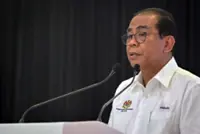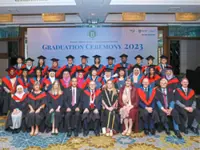GEORGE TOWN: The Health Ministry does not rule out the possibility of hiring specialist doctors from abroad, but the country has sufficient expertise and resources, thanks to a strong synergy between the public and private healthcare sectors, says Datuk Lukanisman Awang Sauni.
The Deputy Health Minister said the ministry is currently refining a set of future-ready healthcare policies aimed at strengthening collaboration between the public and private sectors to enhance service delivery.





